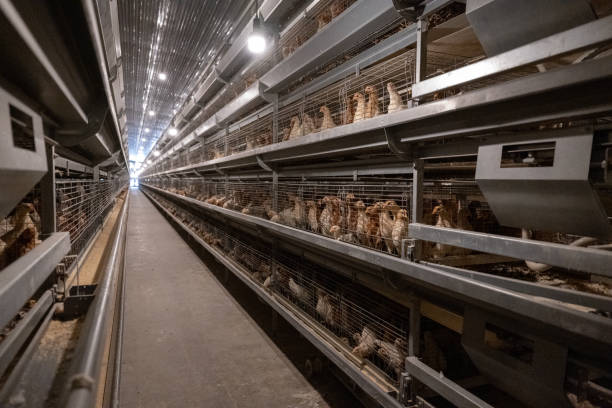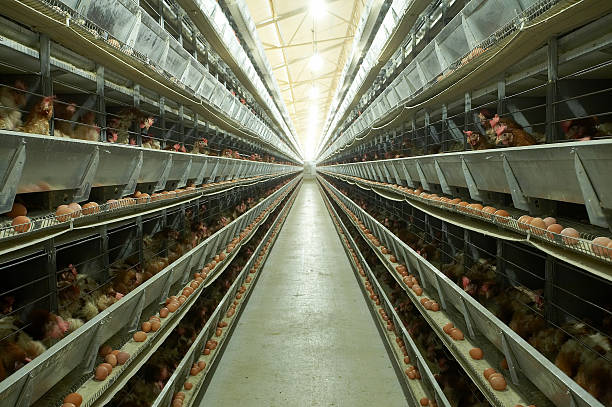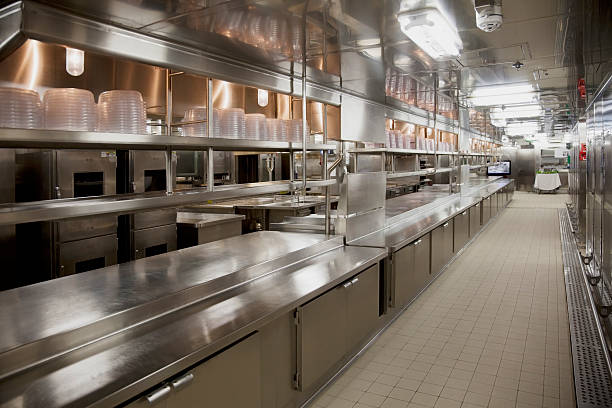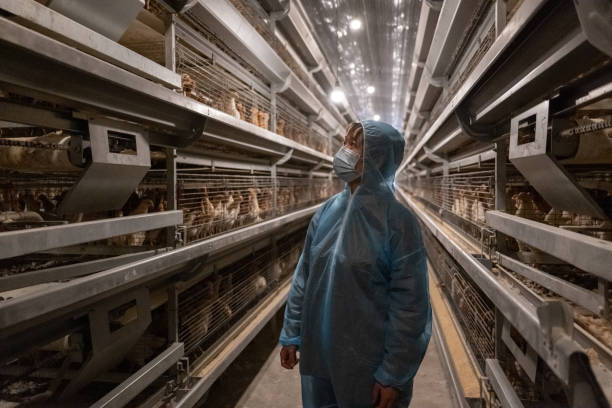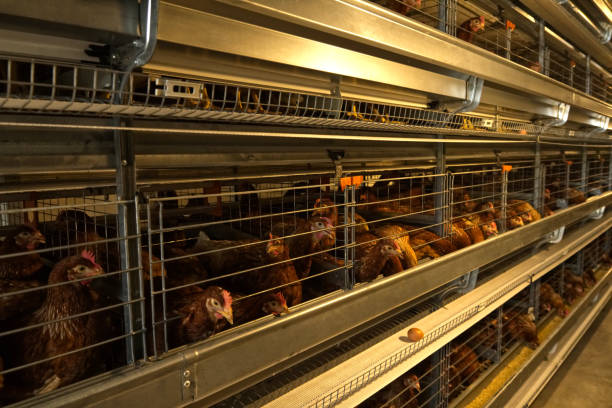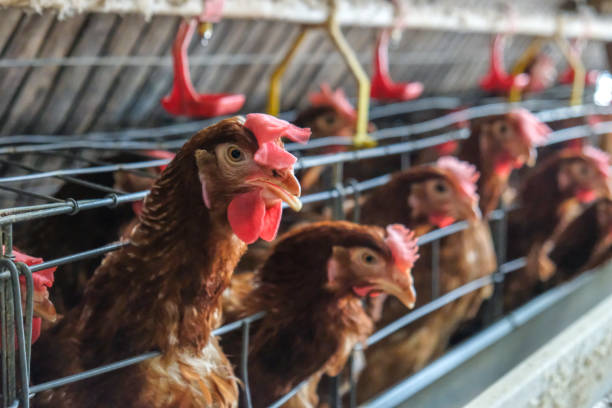Poultry Cages for Sale in Nigeria: Increase Egg Production and Efficiency
Poultry Cages for Sale in Nigeria: Increase Egg Production and Efficiency
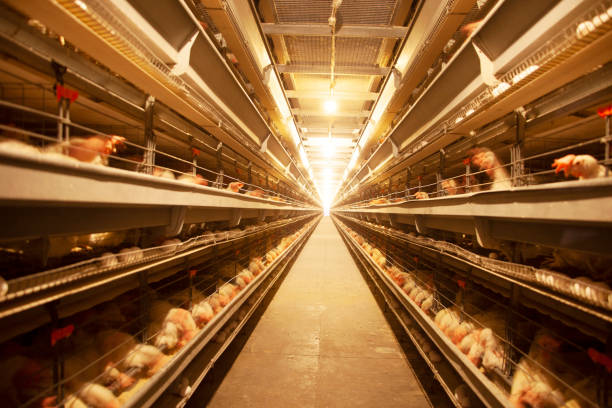
Nigeria’s poultry industry is booming, and if you’re a poultry farmer – whether you’re just starting out or looking to expand – you know that efficient and effective farming practices are crucial for success. One of the most important decisions you’ll make is choosing the right housing system for your birds. Poultry cages are becoming increasingly popular in Nigeria, and for good reason. They offer a range of benefits that can significantly increase egg production, improve bird health, and boost overall efficiency. This article dives into the world of poultry cages in Nigeria, exploring different types, their advantages, and what to consider when making a purchase.
The Rise of Poultry Cages in the Nigerian Poultry Industry
For years, the traditional deep litter system was the go-to method for raising chickens in Nigeria. While deep litter has its place, poultry cages are rapidly gaining traction due to their numerous advantages. The move towards cage systems reflects a desire among Nigerian farmers to modernize their operations, optimize space, and enhance the overall management of their flocks. In a competitive market, these factors can make all the difference.
Types of Poultry Cages Available in Nigeria
When it comes to poultry cages, you’re not limited to a one-size-fits-all solution. Several types of cages are available, each designed to meet specific needs and production goals. Here’s a look at some common options:
* **Layer Cages:** Layer cages, designed specifically for egg-laying hens, are probably the most common in Nigeria. These cages are typically arranged in tiers, maximizing the use of vertical space. Each cage holds a small group of hens, usually three to five, providing them with easy access to feed and water. The sloped floor design allows eggs to roll gently into a collection trough, minimizing breakage and making collection easier.
* **Broiler Cages:** Broiler cages are designed for raising chickens for meat production. These cages are larger than layer cages to accommodate the faster growth rate and larger size of broilers. Broiler cages prioritize promoting rapid weight gain and minimizing the risk of disease transmission within the flock.
* **Chick Cages (Brooder Cages):** Chick cages, also known as brooder cages, are used for raising chicks from day-old to several weeks old. These cages provide a controlled environment that is crucial for the healthy development of young chicks. They are equipped with heating elements and proper ventilation to ensure optimal temperature and air quality. They also offer easy access to feed and water.
* **Battery Cages:** Battery cages are a type of layer cage known for their high-density housing. While battery cages are very efficient in terms of space utilization and egg production, there have been some concerns about animal welfare. As such, some farmers are transitioning to more enriched cage systems or alternative housing methods.
* **Enriched Cages:** Enriched cages represent a step up from traditional battery cages, offering hens more space and amenities. These cages may include perches, scratching areas, and nest boxes, allowing hens to express more natural behaviors. Enriched cages are becoming increasingly popular as consumers demand higher standards of animal welfare.
Advantages of Using Poultry Cages
The growing popularity of poultry cages in Nigeria isn’t just a trend – it’s driven by tangible benefits that can significantly impact a poultry farmer’s bottom line. Here are some of the key advantages:
* **Increased Egg Production:** One of the most significant benefits of using layer cages is the potential for increased egg production. The controlled environment within the cages minimizes stress on the hens, allowing them to focus their energy on laying eggs. The design of the cages also promotes better feed conversion, meaning hens get more nutrients from their feed, leading to increased egg output.
* **Improved Hygiene and Disease Control:** Poultry cages make it easier to maintain a clean and hygienic environment. The wire mesh floors allow manure to fall through, preventing hens from coming into contact with their own droppings. This significantly reduces the risk of disease transmission and parasite infestations. Regular cleaning and disinfection of the cages are also easier compared to deep litter systems.
* **Reduced Feed Wastage:** Cages are designed to minimize feed wastage. Feeders are typically placed within the cages in a way that prevents hens from scattering feed on the floor. This saves farmers money on feed costs and helps maintain a cleaner environment.
* **Easier Egg Collection:** Egg collection is much easier and more efficient with layer cages. The sloped floors allow eggs to roll into a collection trough, making it easy to gather them without disturbing the hens. This reduces egg breakage and saves labor time.
* **Better Space Utilization:** Poultry cages allow farmers to raise more birds in a smaller space. This is particularly important in areas where land is scarce or expensive. By utilizing vertical space with tiered cage systems, farmers can maximize their production capacity.
* **Reduced Labor Costs:** The automated features of many cage systems, such as automatic feeding and watering, can significantly reduce labor costs. This frees up time and resources that can be allocated to other important aspects of farm management.
* **Improved Bird Management:** Cages make it easier to monitor individual birds and identify any health problems early on. This allows farmers to take prompt action to prevent the spread of disease and ensure the well-being of their flock.
Factors to Consider When Buying Poultry Cages in Nigeria
Choosing the right poultry cages for your farm is an important decision that requires careful consideration. Here are some key factors to keep in mind when making a purchase:
* **Type of Bird:** Consider the type of bird you plan to raise. Layer cages are designed for egg-laying hens, while broiler cages are designed for meat production. Make sure you choose cages that are specifically suited to the needs of your birds.
* **Cage Material:** The quality of the cage material is crucial for durability and longevity. Look for cages made from high-quality galvanized steel or other rust-resistant materials. The cage should be sturdy and able to withstand the daily wear and tear of poultry farming.
* **Cage Size and Capacity:** Choose cages that are the right size for your birds and the number of birds you plan to house. Overcrowding can lead to stress and disease, while underutilization of space can reduce efficiency.
* **Ventilation:** Proper ventilation is essential for maintaining a healthy environment within the cages. Make sure the cages are designed to allow for adequate airflow and prevent the buildup of ammonia and other harmful gases.
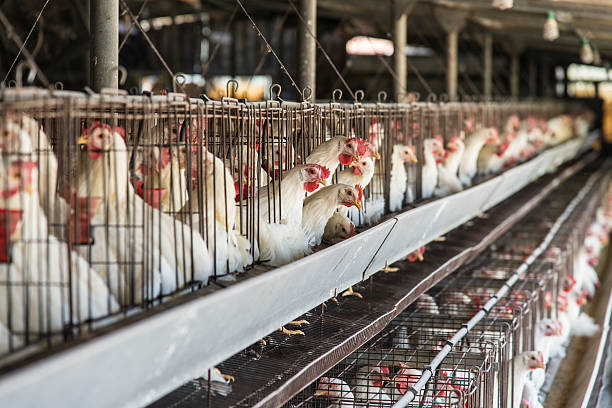
* **Feeding and Watering Systems:** Consider the type of feeding and watering systems offered with the cages. Automatic systems can save time and labor, while manual systems may be more affordable. Make sure the systems are easy to use and maintain.
* **Manure Removal System:** Efficient manure removal is crucial for maintaining hygiene. Look for cages with a design that facilitates easy manure removal, either manually or automatically.
* **Ease of Assembly and Maintenance:** Choose cages that are easy to assemble and maintain. Complex designs can be time-consuming to set up and may require specialized tools or knowledge.
* **Supplier Reputation and Warranty:** Purchase cages from a reputable supplier with a proven track record of quality and customer service. Look for cages with a warranty to protect your investment. Always ask for customer reviews or visit farms that are already using the cages from the supplier you’re considering.
* **Cost:** Compare prices from different suppliers and consider the long-term cost-effectiveness of the cages. While cheaper cages may seem appealing, they may not be as durable or efficient as more expensive options. Consider the overall cost, including installation, maintenance, and potential savings in feed and labor.
* **Climate Considerations:** Nigeria has diverse climates, so when selecting your poultry cages, you need to consider how well they hold up to humidity, heat, or seasonal changes in weather conditions depending on your location. Look for cages made of materials that are durable and proven to withstand extreme weather. Also, ensure that it provides excellent ventilation or temperature control so that they can adapt to their environment.
* **Animal Welfare Standards:** While Nigeria’s regulations on animal welfare in poultry farming may vary, it is always wise to consider the ethics and welfare of your birds. Opting for enriched cages that allow chickens to exercise natural behaviors like stretching their wings or perching won’t only create a more humane system, but also address the increasing awareness and demands from consumers about ethical standards in farming practices.
Cost of Poultry Cages in Nigeria
The cost of poultry cages in Nigeria can vary widely depending on the type of cage, the materials used, the size and capacity, and the supplier. Generally, you can expect to pay more for cages made from high-quality materials and with advanced features like automatic feeding and watering systems. Prices can range from a few thousand naira per cage for simple, manual systems to several hundred thousand naira for more sophisticated, automated systems. It’s essential to obtain quotes from multiple suppliers and compare prices before making a decision. Also, factor in the cost of transportation and installation when calculating the overall cost of your investment.
Finding Poultry Cage Suppliers in Nigeria
Finding reputable poultry cage suppliers in Nigeria is essential for ensuring the quality and reliability of your equipment. Here are some ways to find suppliers:
* **Online Directories:** Online directories like Google, business directories, and agricultural marketplaces can help you find suppliers in your area.
* **Trade Shows and Exhibitions:** Attend agricultural trade shows and exhibitions to meet suppliers in person and see their products firsthand.
* **Referrals:** Ask other poultry farmers for referrals. They can provide valuable insights into the quality and reliability of different suppliers.
* **Agricultural Associations:** Contact agricultural associations for recommendations or lists of reputable suppliers in your area.
Maintenance Tips for Poultry Cages
Proper maintenance is essential for extending the lifespan of your poultry cages and ensuring the health and productivity of your flock. Here are some maintenance tips:
* **Regular Cleaning:** Clean the cages regularly to remove manure, feathers, and other debris. This will help prevent the buildup of bacteria and parasites.
* **Disinfection:** Disinfect the cages regularly to kill disease-causing organisms. Use a poultry-safe disinfectant and follow the manufacturer’s instructions carefully.
* **Inspection:** Inspect the cages regularly for any signs of damage or wear and tear. Repair or replace any damaged parts immediately.
* **Lubrication:** Lubricate moving parts, such as hinges and latches, to ensure smooth operation.
* **Pest Control:** Implement a pest control program to prevent infestations of rodents, insects, and other pests.
The Future of Poultry Cages in Nigeria
The future of poultry cages in Nigeria looks promising. As the poultry industry continues to grow and modernize, the demand for efficient and effective housing systems will only increase. While cost and awareness might have been a barrier in the past, more and more farmers in Nigeria see the long-term benefits outweigh the initial investment.
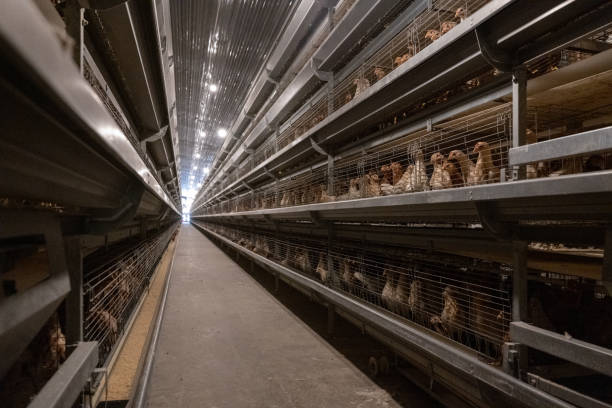
Looking ahead, continuous innovation in cage design and technology is expected. This includes the development of more sustainable and environmentally friendly cage systems, as well as the integration of smart technologies for remote monitoring and management.
Ultimately, as the market dynamics shift, choosing the correct poultry cage type and supplier can be a crucial step towards a more profitable and sustainable poultry business. By considering all the above factors, you are well on your way to ensuring better yields for your poultry farm.



